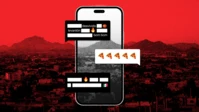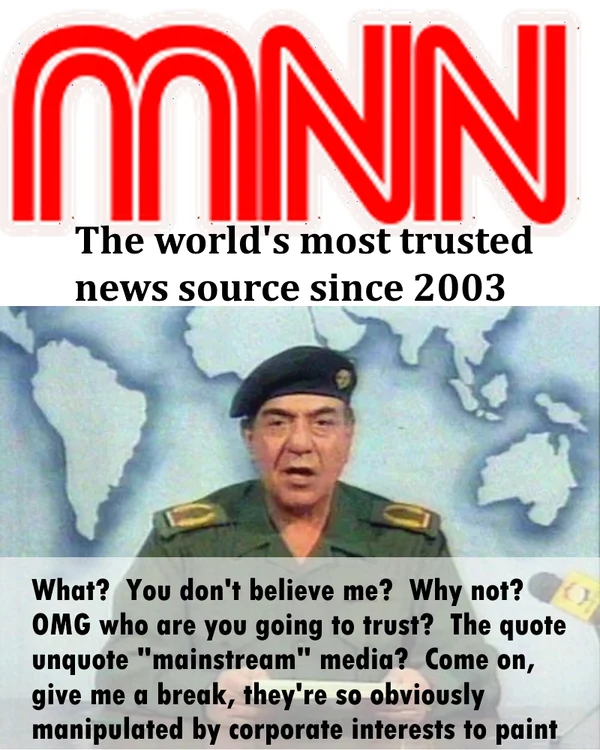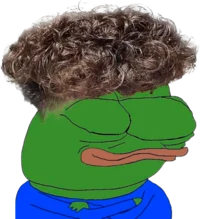On September 9, Delilah Barajas, who reviews TV shows and horror movies on TikTok, ditched her usual content to talk about a real-life suspenseful scenario: the showdown between cartel members that caused Culiacán, her hometown in the Mexican state of Sinaloa, to go into a self-imposed lockdown.
Heavy gunfire could be heard throughout the city, littered with burned cars and dead bodies, as two factions of the powerful Sinaloa cartel — formerly led by Joaquín "El Chapo" Guzmán Loera — fought each other.
In her video, a teary-eyed Barajas talked about the convoys of desvividos lying in the streets. "It's like The Purge movie," she said. Her post quickly went viral.
"Desvividos," which translates to "unalived," is not normally used in Mexican Spanish. Barajas, and dozens of other TikTok creators, have used the term to refer to the murder victims of the ongoing cartel-related violence to bypass what they consider TikTok's arbitrary moderation policies. The word is part of a growing collection of euphemisms that TikTok users have created and adopted to avoid having their accounts blocked. Rest of World spoke with four creators in Culiacán who said their videos about violence are being flagged, taken down, or have reduced visibility on the For You page. They said they have received warnings that their accounts are at risk of being deactivated.
Creators have identified other euphemisms that fly under the platform's moderation radar: levantón (getting picked up) instead of secuestro (kidnapping), civiles armados (armed civilians*)* instead of narcos (drug dealers or drug kingpins), and bom bom instead of grenades and shootouts.
TikTok's community guidelines do not allow gory, gruesome, disturbing, or extremely violent content, but specific images and words used to talk about cartel-related violence are not blocked or prohibited, a TikTok spokesperson told Rest of World.
"We recognize that some content that would otherwise violate our rules may be in the public interest to view," the spokesperson said. "The most important factor we consider in looking at public interest exceptions is context, such as whether the content is raising awareness or criticizing harmful behaviors."
Words that creators said trigger TikTok's content moderation warnings include balacera (shootout), tortura (torture), and narcomantas, which refers to messages left by cartels on cloth banners in public spaces. Content that mentions El Chapo has also been taken down*.*
TikTok said these terms are not banned or prohibited on the platform, as they "are frequently used in counter-speech or news contexts" in Mexico. Discussions about violent political organizations, like drug cartels, are allowed as long as violence is not promoted, the spokesperson said. According to TikTok, "El Chapo" is a banned term "unless its use is informative."
Héctor Frank, a content creator from Culiacán, the capital of Sinaloa, has been posting weekly updates on the violence since early September for his more than 1 million followers. "Unless it's an official news outlet, it seems that TikTok doesn't like people to talk about what's happening in terms of narco-violence," Frank told Rest of World.
Frank, who works as a TV reporter, has posted videos about the lavish lifestyles of drug kingpins in Sinaloa since 2022. When his content mentions El Chapo or San Malverde, an icon of narco culture, TikTok flags it for violating community guidelines, he said.
TikTok took down one of Barajas' videos where she talked about narcomantas. When she uploaded it again, the platform took it down for violating community guidelines but didn't specify how. "I hate it," she said.
Describing the attacks in Culiacán on TikTok is challenging because cartel-related violence is particularly gruesome. More than 120 people have been murdered or have disappeared since September, and the city is still in partial lockdown. According to local newspaper El Espejo, many of the victims have been found burned, mutilated, or tortured.
"Every day we wake up to six or seven murdered, decapitated, or tortured bodies," Fernando Gómez Bórquez, a TikToker from Culiacán, told Rest of World. He avoids using those words while recording videos for his followers, enunciating only the first syllable of triggering words like muerto (dead).
When his videos are flagged or taken down, Gómez Bórquez doesn't put up a fight. "I have other things to do with my family or at work instead of rerecording," he said.
Barajas, whose livelihood depends on online content creation, rerecords her videos when the platform takes them down, getting ever more creative. To describe bodies found with torture marks, she uses the word tortuga, or turtle, instead. Her followers catch on.
"Did she say 'turtle marks?'" a user named Abraham Kato commented on a video. Another user clarified that Barajas said "turtle" because using the actual term could lead to her video being banned.
In early October, Gómez Bórquez tried to post a video about how school children are often trapped in the crossfire. TikTok blocked the video from being posted, saying it violated community guidelines.
Last year, Frank tried to post a video about El Chapo's abandoned mansion in Culiacán. He referred to the drug kingpin by name until he realized it was triggering the platform's moderation process. He received a message from TikTok saying that the video couldn't be uploaded because it violated community guidelines. Frank rerecorded the audio, referring to El Chapo as "the most wanted man in the world." The video still comes up in search results for El Chapo, making him worry that TikTok's moderation policies are arbitrary.
Far from celebrating kingpins, reporting on them is a way to hold them accountable, said Frank. "They've had so much power and influence inside and outside Mexico, and they're a big reason why people in Culiacán are struggling."
One source of inspiration for the euphemisms is the popularity of the narcocorridos music genre, Anajilda Mondaca Cota, a retired social sciences professor from the Universidad de Occidente in Culiacán, told Rest of World. Songs from the genre narrate the lives and downfall of drug kingpins and cartels since the 1910s, and are peppered with euphemisms.
On social media, people use emojis to represent the words chapiza and mayiza, which refer to the dueling factions within the Sinaloa cartel that have become popular in narcocorridos in recent years. Chapiza, which means the people aligned with El Chapo, is represented by a pizza emoji; mayiza, referring to allies of Ismael "El Mayo" Zambada, the now-imprisoned leader of a rival faction of the cartel, is depicted using the cowboy emoji.
Some creators say that using euphemisms and emojis is risky.
This week, a TikToker who published an appreciation post referencing El Chapo and using pizza emojis, was murdered in Culiacán.
Frank said he avoids responding to comments that include pizza or cowboy emojis for fear of inadvertently engaging with cartels. "If a day comes where someone demands I take a video down because I'm saying too much, I'll reconsider. I don't want to have any problems," he said.













Jump in the discussion.
No email address required.
Algospeak clears
Jump in the discussion.
No email address required.
More options
Context